Disclosure: This article contains affiliate links. We may earn a commission from purchases at no extra cost to you, which helps our travel content.
The first time I set foot in Mbarara—Uganda's western commercial hub—I was struck by how this emerging city perfectly encapsulates the economic transition happening across East Africa. Nestled amid rolling hills with the misty silhouettes of distant mountains, Mbarara offers solo travelers a fascinating blend of authentic Ugandan culture, Ankole heritage, and proximity to some of the country's most spectacular natural wonders. As someone who's explored over 70 countries through an economist's lens, I find Mbarara particularly interesting as a microcosm of Uganda's rapid development and a gateway to extraordinary adventures.
Understanding Mbarara's Economic Landscape
As an economist who specializes in tourism impacts, I'm always analyzing how a destination's economic structure shapes the visitor experience. Mbarara presents a fascinating case study. Once a modest trading post, it has evolved into western Uganda's commercial center, fueled by the dairy industry (the Ankole long-horned cattle are iconic), education (with several universities), and its strategic position along the route to national parks.
The city's development is evident in its growing hospitality sector, with new accommodations ranging from budget guesthouses to mid-range hotels. This economic growth creates a relatively stable environment for solo travelers, though it remains distinctly Ugandan in pace and character.
For solo travelers, this translates to finding surprisingly good value. A comfortable room at a mid-range establishment like Acacia Hotel costs roughly 40-60 USD—significantly less than comparable accommodations in Kampala or tourist hubs near the national parks. Local meals rarely exceed 5 USD, even at nicer establishments, making it easy to manage expenses while enjoying authentic experiences.
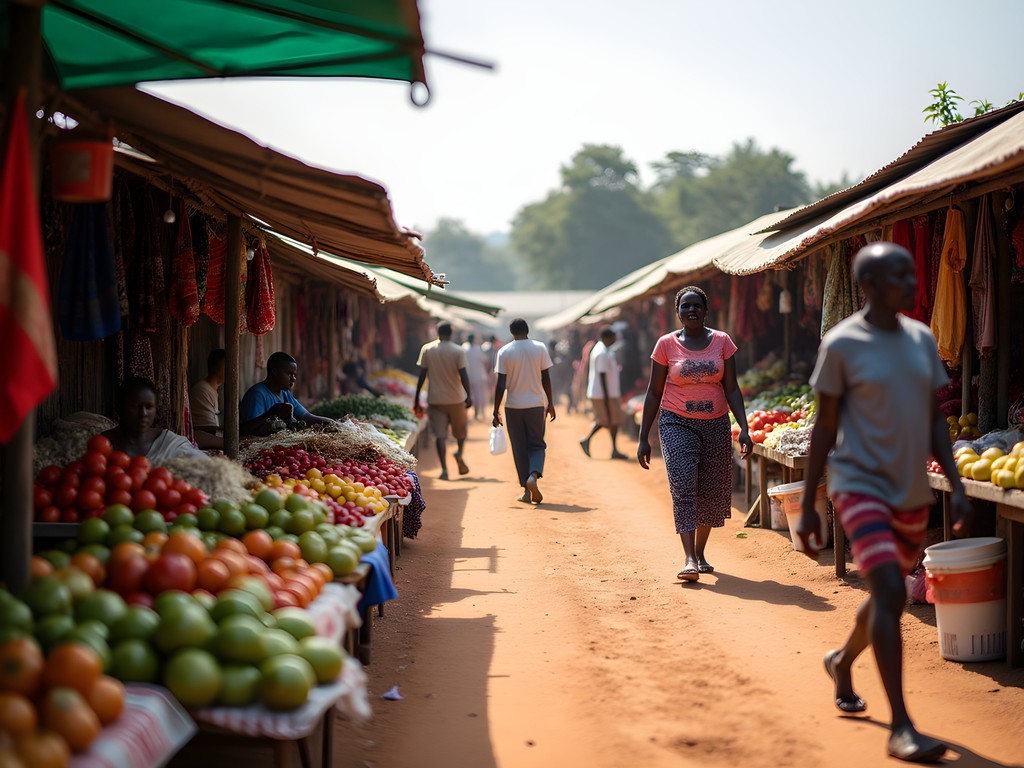
💡 Pro Tips
- Exchange money at official banks in Mbarara rather than at the border for better rates
- Support the local economy by purchasing crafts directly from artisans rather than tourist shops
- Budget approximately 30-50 USD per day for comfortable but not luxurious solo travel
Safety Considerations for Solo Travelers
Safety is naturally a primary concern for solo travelers in any destination, and Mbarara deserves a nuanced assessment. After decades of exploring emerging destinations, I've developed a sixth sense for evaluating risk, and Mbarara ranks favorably among similar-sized African cities.
Mbarara benefits from being relatively removed from Uganda's historical conflict zones and maintains a reputation as one of the country's safer urban areas. As in any developing city, petty theft can occur, but violent crime targeting tourists is uncommon. I walked comfortably through the city center during daylight hours and early evening without incident.
During my week-long stay, I relied heavily on my money belt which proved invaluable for discreetly carrying cash and documents. For evening excursions, I always kept my portable door lock in my daypack—a simple device that adds an extra layer of security to any accommodation door.
My standard practice in new locations is maintaining digital safety too. I used a portable VPN router when connecting to public Wi-Fi, ensuring my banking and communication remained secure.
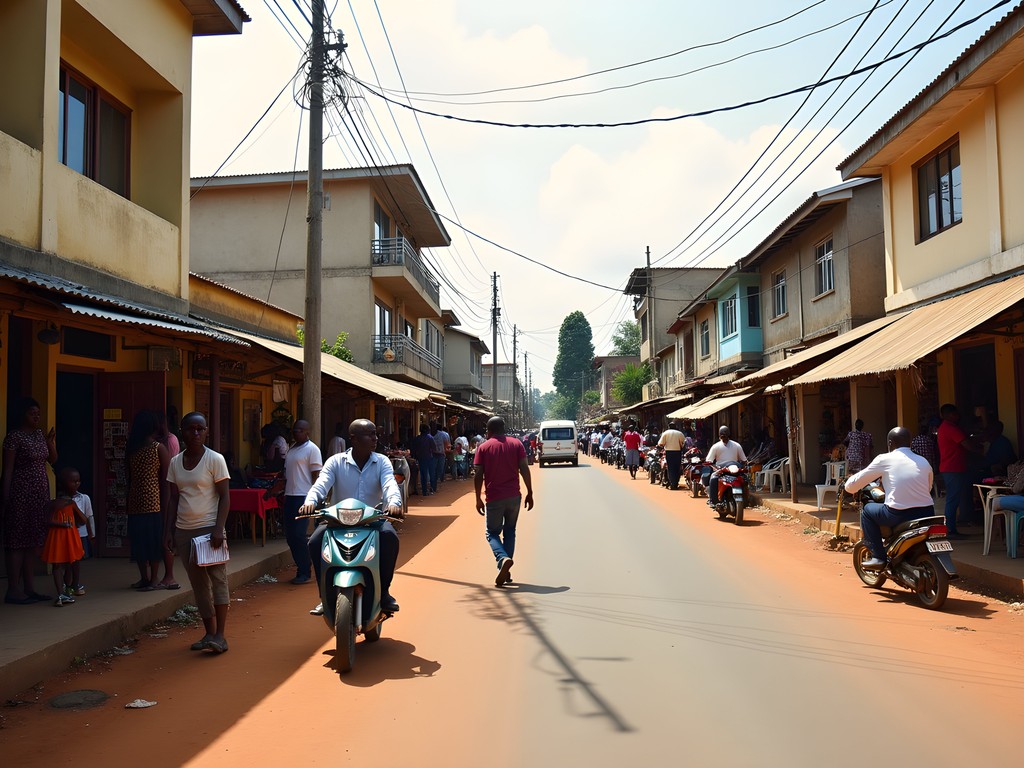
💡 Pro Tips
- Register with your embassy's traveler program before arriving in Uganda
- Use bodas (motorcycle taxis) sparingly and only with helmets provided
- Avoid displaying expensive electronics or jewelry, particularly in crowded areas
Cultural Immersion in Ankole Territory
The true wealth of Mbarara lies in its cultural significance as the heart of the Ankole Kingdom. As a linguist at heart (obrigado to my Brazilian mother for instilling this passion), I found tremendous value in learning basic Runyankole phrases, which opened doors to authentic interactions impossible through English alone.
The Igongo Cultural Centre, located just outside the city, offers the most comprehensive introduction to Ankole heritage. For 20 USD entrance, you'll experience traditional homesteads, artifacts, and insightful exhibitions on the region's history. What fascinated me most was how cattle culture permeates every aspect of traditional life—from economic systems to social hierarchies.
To fully appreciate this cultural landscape, I recommend carrying a quality field guide to provide context to what you're experiencing. During my visit, I also used a language translation device which, while not perfect with Runyankole, helped bridge gaps when English wasn't sufficient.
For a deeper connection, arrange a visit to a local dairy farm through your accommodation. My afternoon at a family-run operation provided insights into both traditional practices and modern economic adaptations—plus sampling the freshest ghee you'll ever taste.
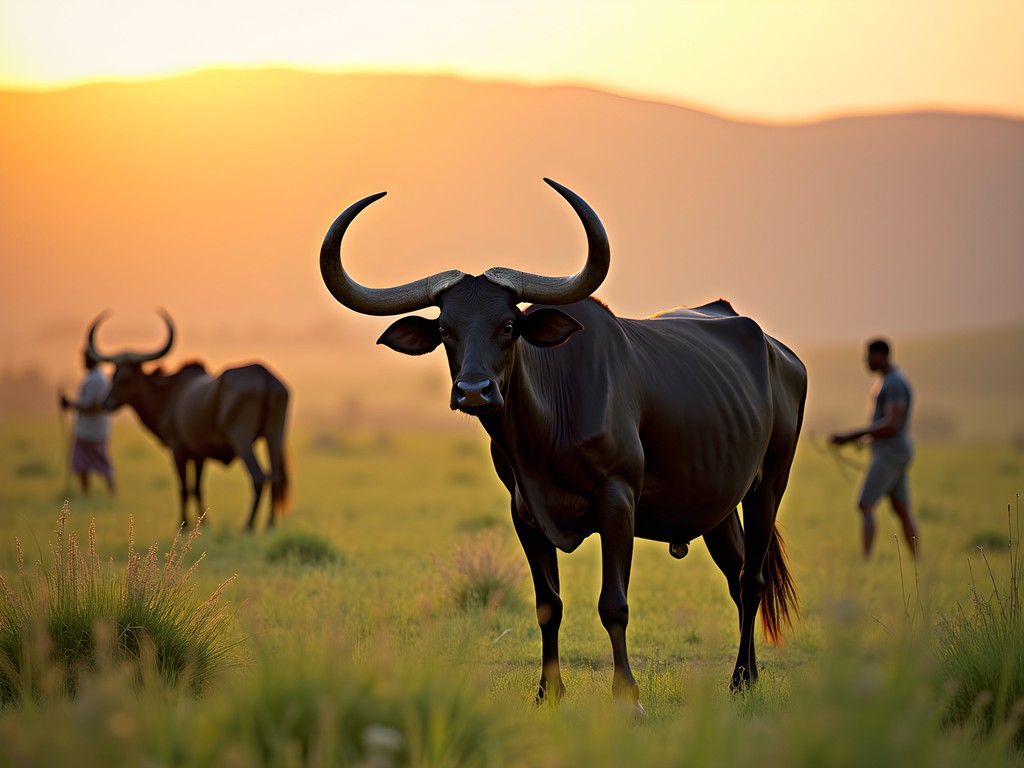
💡 Pro Tips
- Learn basic greetings in Runyankole: 'Agandi' (Hello) and 'Webare' (Thank you)
- Request permission before photographing people, especially in rural areas
- Remove shoes when entering traditional homes as a sign of respect
Day Excursions: Natural Wonders and Adventure
Mbarara's strategic location makes it an excellent base for exploring western Uganda's natural splendors—a factor that significantly enhances its tourism economic potential. As someone who rediscovered life's fragility during a caving mishap in my 40s, I've learned to appreciate these natural wonders with both caution and profound reverence.
Lake Mburo National Park, just an hour's drive east, offers Uganda's most accessible safari experience. At 40 USD entrance fee plus vehicle costs, it's considerably more affordable than the country's more famous parks. While you won't see elephants or lions, the landscape of acacia woodland and lakes hosts impressive populations of zebra, impala, and over 300 bird species. I recommend hiring a guide directly through the Uganda Wildlife Authority for the most educational experience.
For the adventurous soul, the nearby Kalinzu Forest Reserve provides exceptional chimpanzee tracking opportunities at roughly half the cost of the more famous Kibale Forest. During my trek, my waterproof hiking boots proved essential on the muddy trails, as did my insect repellent clothing which protected against persistent forest insects.
My most memorable excursion was to the stunning Kitagata Hot Springs, where I soaked in mineral-rich waters alongside locals who shared stories of the springs' healing properties—a perfect blend of natural wonder and cultural exchange.
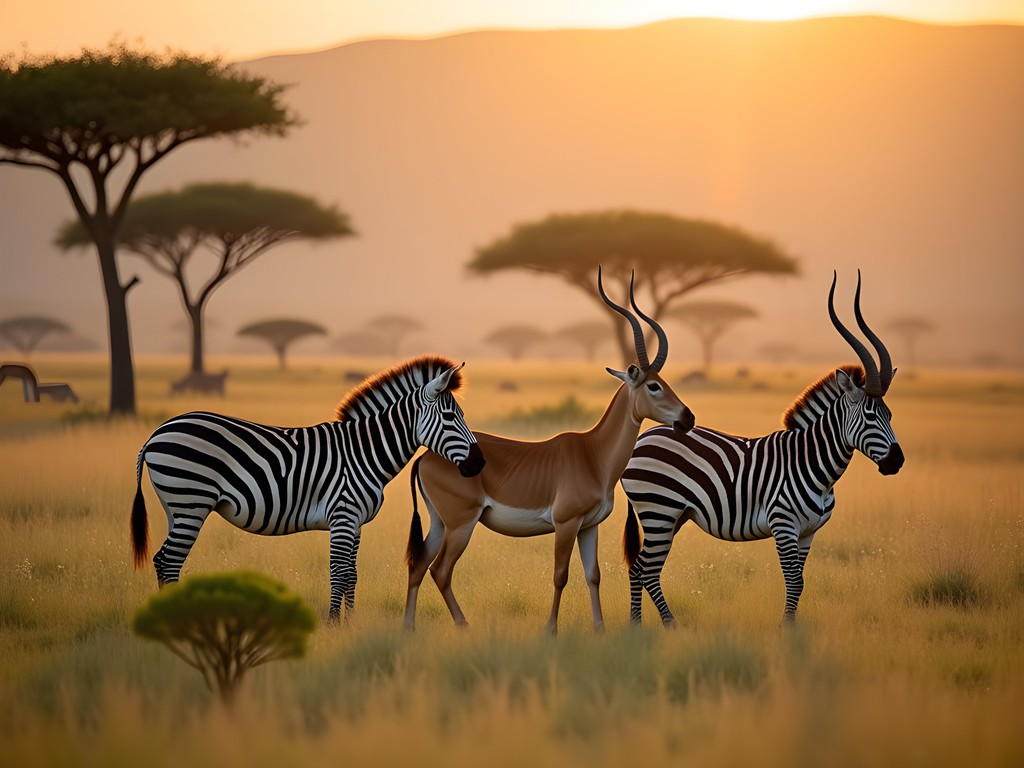
💡 Pro Tips
- Arrange transportation through your accommodation rather than street touts
- Book national park visits at least one day in advance during peak season
- Pack a reusable water bottle with integrated filter for day excursions
Practical Logistics and Connectivity
For the solo traveler, particularly one accustomed to certain conveniences, understanding Mbarara's infrastructure limitations is crucial. The city exemplifies what economists call 'leapfrog development'—skipping stages of technological evolution seen in Western countries.
Mobile connectivity is surprisingly robust, with 4G available through providers like MTN and Airtel. I purchased a local SIM card (approximately 5 USD with initial data) immediately upon arrival—an essential step for navigation, translation, and safety. For extended stays or heavy data usage, I recommend the portable wifi hotspot which allowed me to maintain reliable connectivity even in more remote areas around Mbarara.
Transportation within the city relies primarily on boda bodas (motorcycle taxis) and shared minivans locally called 'taxis.' While affordable, they require caution. For longer excursions, I arranged private drivers through my hotel—more expensive but significantly more comfortable and reliable.
Power outages occur regularly, so I never traveled without my solar power bank, which proved invaluable during an unexpected six-hour blackout. Banking facilities are adequate with several ATMs accepting international cards, though I always recommend carrying moderate cash reserves in USD as contingency.
Não tem jeito—there's no way around it—Mbarara requires flexibility and patience regarding logistics, but that's precisely what makes it rewarding for the experienced solo traveler.
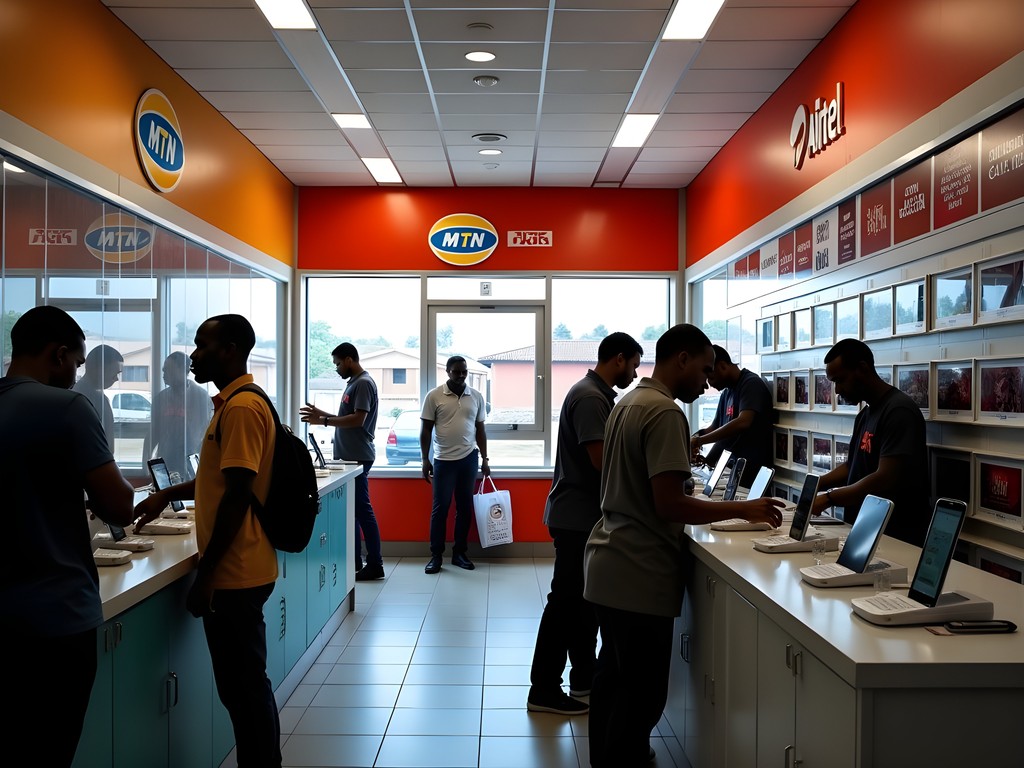
💡 Pro Tips
- Download offline maps of Mbarara and surrounding areas before arrival
- Carry a photocopy of your passport and visa while keeping originals secure
- Purchase a local SIM card immediately upon arrival for navigation and emergency contact
Final Thoughts
Mbarara represents what I find most compelling about travel in emerging destinations—the opportunity to witness economic and cultural evolution in real-time. As Uganda continues developing its tourism infrastructure, this western hub offers a perfect balance of authenticity and accessibility for the experienced solo traveler willing to embrace both its challenges and rewards.
What struck me most during my week in Mbarara was the economic resilience evident everywhere—from innovative mobile payment systems leapfrogging traditional banking to sustainable tourism initiatives preserving cultural heritage. For the solo traveler seeking experiences beyond the well-trodden safari circuit, Mbarara provides a fascinating window into contemporary Uganda.
As I left the city, watching those iconic long-horned Ankole cattle grazing against the backdrop of misty hills, I was reminded why I continue seeking out these less-celebrated destinations. A verdadeira riqueza está nas experiências autênticas—true wealth lies in authentic experiences. And Mbarara, with its warm people, cultural depth, and economic dynamism, offers riches that far outweigh any temporary inconveniences of frontier travel.
✨ Key Takeaways
- Mbarara offers excellent value as a base for exploring western Uganda's natural and cultural attractions
- The city's safety profile makes it suitable for experienced solo travelers comfortable with emerging destinations
- Cultural immersion opportunities, particularly regarding Ankole heritage, provide depth beyond typical tourist experiences
- Economic development is creating increasingly comfortable infrastructure while maintaining authentic character
- Strategic preparation regarding connectivity, transportation, and safety maximizes enjoyment of this emerging destination
📋 Practical Information
Best Time to Visit
Dry seasons: December-February and June-August
Budget Estimate
$40-80 USD per day
Recommended Duration
3-5 days
Difficulty Level
Moderate-Challenging
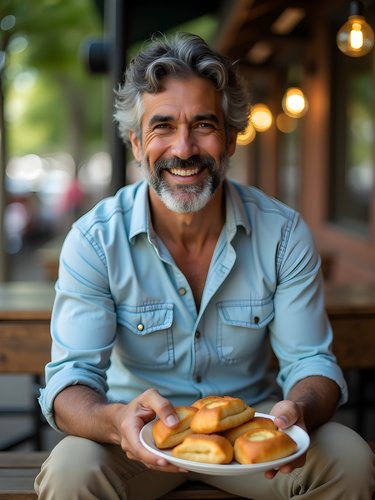
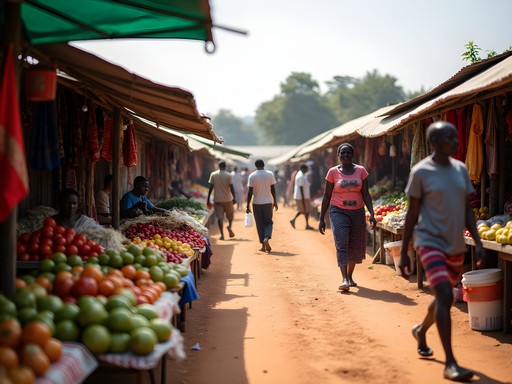
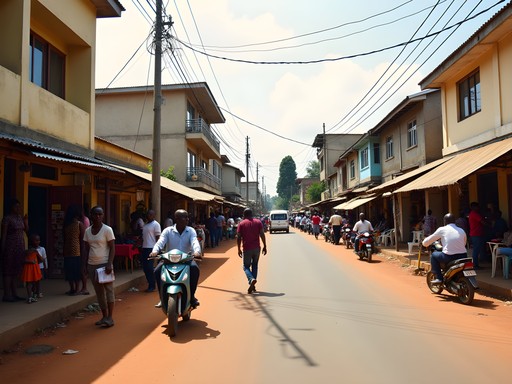
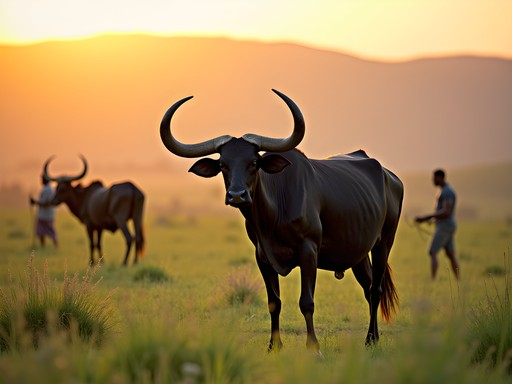
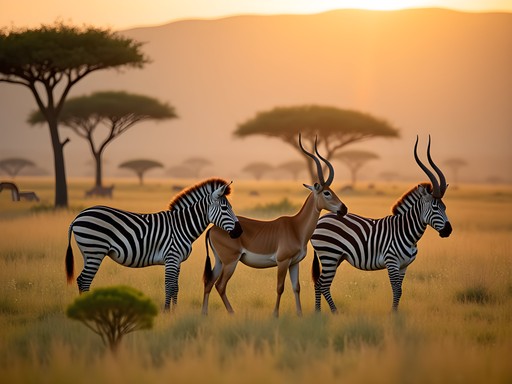
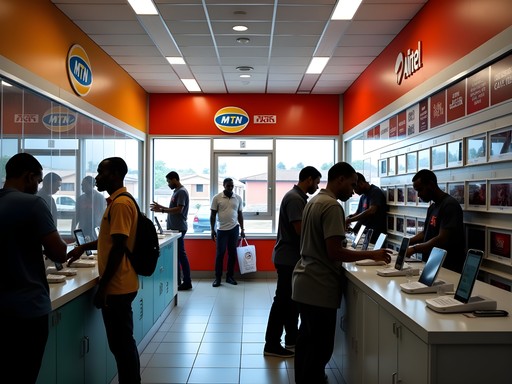


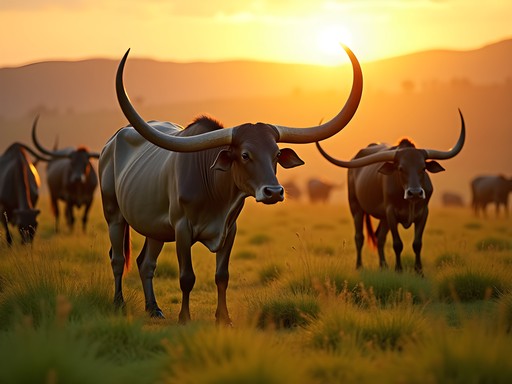

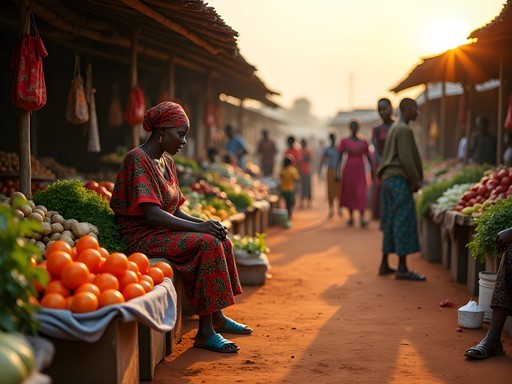
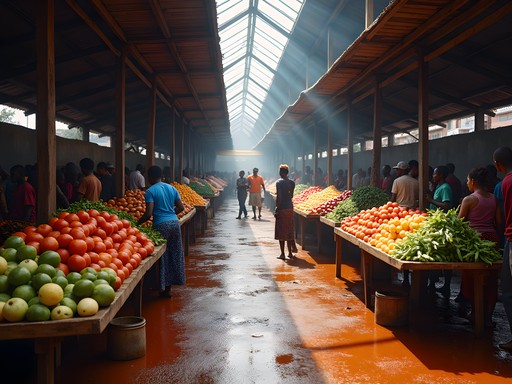
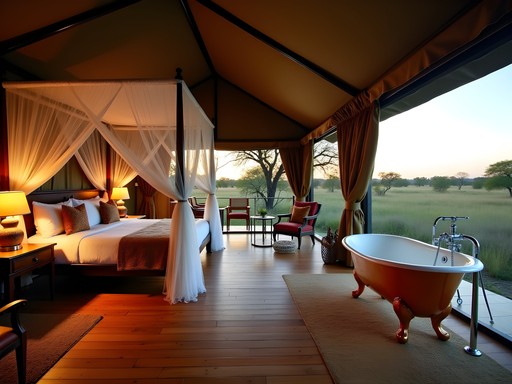
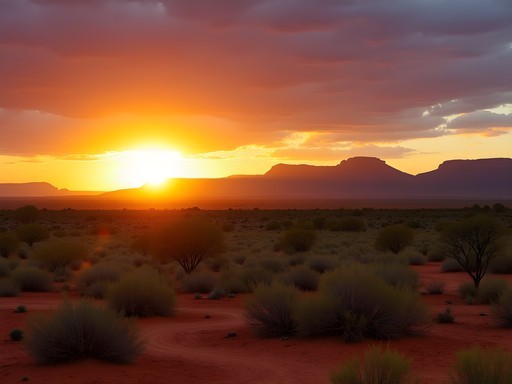
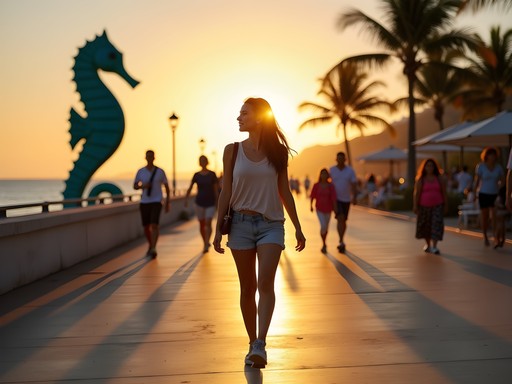
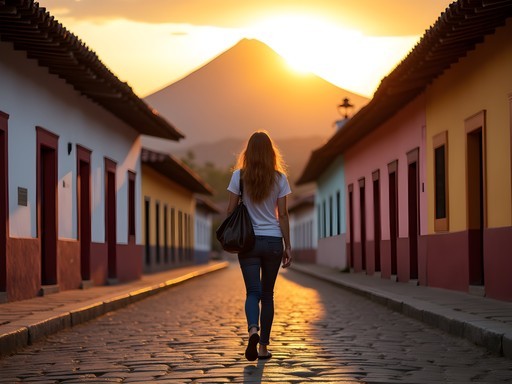
Comments
travelguide
Just got back from Uganda and Mbarara was an unexpected highlight! The economic boom is real - so many construction projects happening. We did the public transportation too and it was great. The matatus (minibuses) are crowded but super cheap and a fun way to meet locals. Lars, your tips about visiting the cattle farms were spot on - we got to see a traditional milking ceremony which was fascinating! The sunset views over the hills are INCREDIBLE. Don't miss the local craft markets!
springclimber
Did you feel safe as a tourist there? Considering going solo next month.
travelguide
Absolutely! Just use normal travel precautions. The locals were incredibly friendly and helpful. I even walked around the city center in early evenings without issues.
smartadventurer
Great post! How difficult is it to arrange transportation to Lake Mburo from Mbarara if you're not with a tour group?
Lars Snyder
It's quite straightforward! You can take a matatu (shared taxi) from Mbarara to Sanga, which is close to the park entrance. From there, you'll need to hire a boda boda to the gate. Alternatively, many guesthouses in Mbarara can arrange private transportation for around $30-40 round trip. Just make sure to negotiate and arrange your return trip clearly.
skybuddy
Is it easy to find vegetarian food in Mbarara? Planning a trip through Uganda next year!
travelguide
I was there in August! Lots of vegetarian options with beans, matooke (plantains), and cassava. The Indian restaurants in town have great veg options too!
skybuddy
That's so reassuring, thanks! Any specific restaurants you'd recommend?
travelguide
Try Mbarara Spice Garden for Indian food and Crane Cafeteria for local dishes. Both had plenty of veg options!
moonway
Just got back from Uganda including 3 days in Mbarara! Your post would have been so helpful before I went. The milk bar culture was such a surprise - I loved trying the different fermented milk products. We stayed at Rwizi Arch Hotel which had amazing views of the hills. The day trip to Lake Mburo was definitely worth it - saw zebras, impalas and even a few giraffes! The local transportation was a bit confusing at first but people were incredibly helpful once they realized we were lost. Thanks for putting Mbarara on more travelers' radar!
bluebackpacker
Were the prices in Mbarara reasonable? Planning my budget for my trip there.
moonway
Super affordable! Local meals were $2-4, nice hotel rooms $30-50, and boda boda rides around town less than $1. Much cheaper than Kampala or Entebbe.
Ana Robinson
Lars, this brought back so many memories! I visited Mbarara with my family last year and was equally impressed by how it balances tradition with modernization. For anyone planning a trip, I highly recommend the milk and yogurt from the local dairy cooperatives - my kids still talk about it! We stayed at a small guesthouse run by a local family who taught us how to prepare traditional Ankole dishes. The boda bodas (motorcycle taxis) were indeed everywhere, but we found using the SafeBoda app made the experience much more reliable. I used my travel wallet which was perfect for keeping cash and cards secure while navigating the busy markets.
backpackace8497
Thanks for this guide! I'm planning a solo trip to Uganda and wondering if 2 days is enough for Mbarara or should I plan for more? Also, any accommodation recommendations for a budget traveler?
Lars Snyder
I'd recommend 3 days minimum - 1 for the city itself, 1 for cultural experiences, and 1 for a day trip to Lake Mburo. For budget accommodation, Rwizi Arch Hotel offers clean rooms and good value. The Mbarara Backpackers Hostel has decent dorms if you want to meet other travelers.
backpackace8497
Perfect, thanks! Will look into both options and plan for 3-4 days.
springclimber
Those photos of the long-horned Ankole cattle are incredible! Definitely adding Mbarara to my bucket list.
moonfan
Great post Lars! I'm heading to Uganda next month and wasn't sure about including Mbarara in my itinerary. How many days would you recommend staying there as a solo traveler? And did you feel safe walking around at night?
Ana Robinson
Not Lars, but I spent 3 days in Mbarara last year and felt it was perfect. Safe enough at night in the central areas, but I still used Uber after dark. The Ankole cultural museum was a highlight!
moonfan
Thanks Ana! That's really helpful. Did you do any day trips to Lake Mburo?
Ana Robinson
Yes! Lake Mburo was amazing - just about an hour's drive. I booked through my guesthouse which was easier than arranging independently. Take binoculars if you have them - the wildlife viewing is excellent!
Hannah Woods
Lars, this guide fills an important gap in Uganda travel content. Having visited Mbarara twice in the past three years, I've observed the exact economic transition you describe. What fascinates me is how the city serves as both a commercial hub and a gateway to traditional Ankole culture. Your safety section is particularly valuable - I'd add that the matatu station can be overwhelming for first-timers, so I recommend visiting first with a local to understand the system before attempting solo journeys. One thing I'd emphasize for solo travelers is the value of learning basic Runyankole phrases. Even simple greetings opened so many doors for me with local families. I documented my cultural immersion experiences with a travel journal which helped me process the contrasts between traditional cattle-keeping communities and the rapidly modernizing city center. Anyone heading to western Uganda should definitely spend time in Mbarara rather than just passing through.
photoseeker2141
OMG your photos of the Ankole cattle are AMAZING!! Those horns are unbelievable! Did you need a special lens to capture them so well? Going to Uganda next year and definitely adding Mbarara to my list now!
Lars Snyder
Thanks! No special equipment needed - just my mirrorless camera with the kit lens. The cattle are quite approachable if you're with a local guide. Make sure to visit during the early morning when the light is magical!
Venture X
Premium card with 2X miles, $300 travel credit, Priority Pass